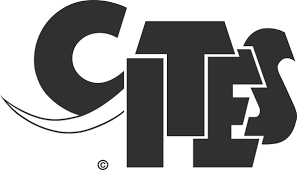An expert workshop brought together experts and specialists to discuss demand-side strategies for addressing illegal ivory trade in China, and increase their awareness of the negative consequences of ivory speculation.
The workshop was co-organized by China and the Secretariat of the Convention on International Trade in Endangered Species of Wild Fauna and Flora (CITES).
 28 January 2015: An expert workshop brought together experts and specialists to discuss demand-side strategies for addressing illegal ivory trade in China, and increase their awareness of the negative consequences of ivory speculation. The workshop was co-organized by China and the Secretariat of the Convention on International Trade in Endangered Species of Wild Fauna and Flora (CITES).
28 January 2015: An expert workshop brought together experts and specialists to discuss demand-side strategies for addressing illegal ivory trade in China, and increase their awareness of the negative consequences of ivory speculation. The workshop was co-organized by China and the Secretariat of the Convention on International Trade in Endangered Species of Wild Fauna and Flora (CITES).
Participants at the workshop, which took place in Hangzhou, China, on 28-29 January 2015, included representatives from national wildlife and other relevant authorities from China, UK, US, the European Commission, and international organizations, including the UN Development Programme (UNDP), the UN Environment Programme (UNEP), the UN Office on Drugs and Crime (UNODC) and the World Bank, as well as the private sector and NGOs.
They sought to better understand the markets, the motivations and the economics of the demand for illegal ivory, identifying key stakeholders and investors.
John Scanlon, CITES Secretary-General, noted that awareness campaigns to reduce the size of the illegal markets have not yet specifically targeted the speculative nature of the demand for high volumes of illegal ivory in black markets. Illegal ivory trade continues to undermine the survival of elephant populations across Africa.
Liu Dongsheng, State Forestry Administration of China, noted his country’s role in cross-continent wildlife enforcement including through Operation Cobra. [CITES Press Release] [CITES Secretary-General Remarks]